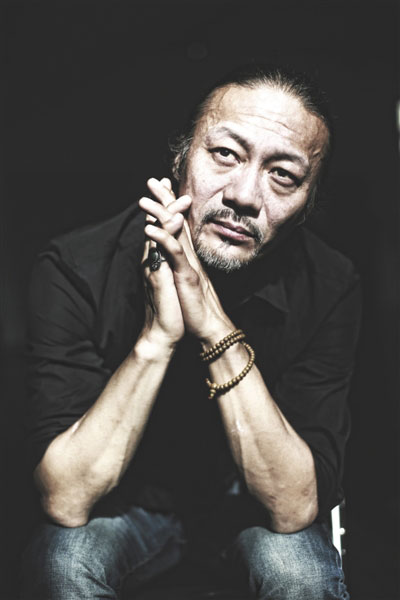Born in Tibet, Sang Jijia is a dancer with strong personal trademarks. After touring Germany to learn avant-guard styles of choreography, the dancer has mixed western dancing styles with his own aesthetics.
Sang Jijia was born in 1974 in a Tibetan Autonomous Perfecture just south of Gansu province. His childhood memory is filled with temples and chanting sounds from devout Buddhists. His fate-changing moment came when he was 12 years old, when a group of dance teachers from Minzu University of China, came to visit his class.
Sang was chosen to be recruited because of his build, and dancer's body proportions. He then began his training in Beijing as a dancer. But it was not until 1991 that Sang first came across modern dance, when he watched a show performed by the Guangdong Modern Dance Company. He fell in love with the free, unrestrained dancing style immediately joined the dance company. During his years at the company, he began to choreograph his own works.

Born in Tibet, Sang Jijia is a dancer with strong personal trademarks.
The vast territory of his hometown might have given him a kind of serenity, to be a spectator who is able to view life and record them in dances. In 1996, he won the gold prize in the modern dance category at the seventh Paris International Dance Competition.
Two years later, he won a scholarship from the Asian Cultural Foundation to study in the United States. But the real breakthrough for Sang came in 2002, when he was chosen by master William Forsythe to study choreography in Germany. After that, a burst of creativity followed.
He created many widely-acclaimed dance shows for Beijing LDTX, like "Before Darkness", "As If To Nothing", and "Re-set". Last year, he returned to Hong Kong, and is now a resident choreographer at the City Contemporary Dance Company.















